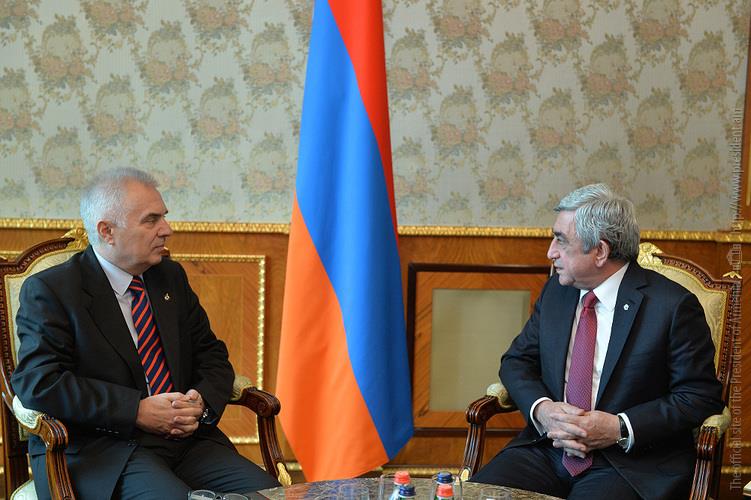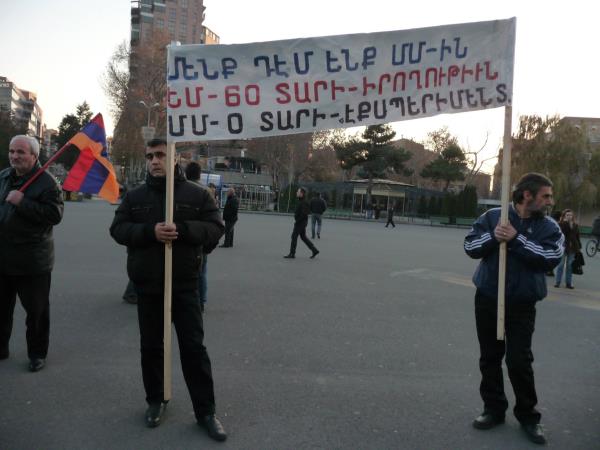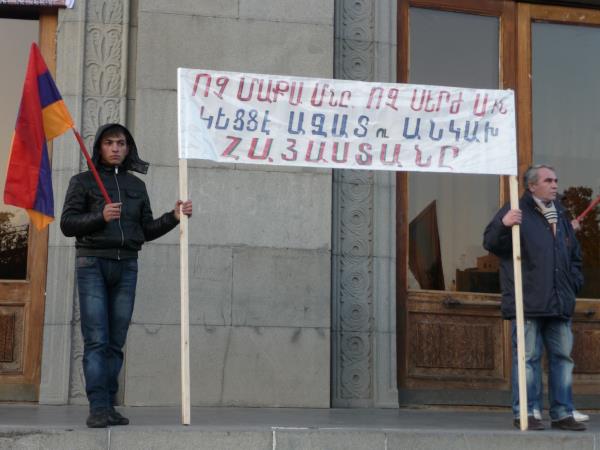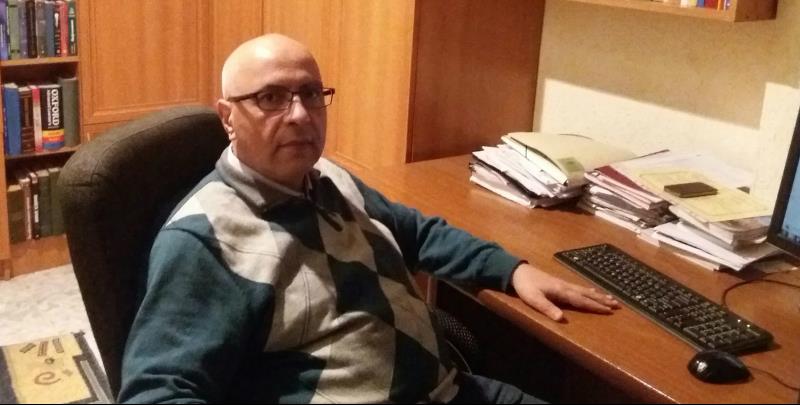Armenia not to renounce European integration
Having resumed a process of signing the agreement with the European Union (EU), Armenia has been again given a chance to get back on the European integration path. It was announced about the launch of talks on the EU-Armenia framework bilateral agreement at the end of 2015. However, it is unclear yet, what spheres it will include. What is known so far is that, unlike the previous Association Agreement with the EU, the new document will not contain a Free Trade Area provision.
In fact, the new treaty is not referred to as the Association Agreement. This is a legal document related to political issues, visa liberalization, human rights and implementation of Armenia’s democratization programs.
It seems that the document will not include the items, concerning customs and economic interrelations that are incompatible with the EU-EAEU parallels. Armenia has transferred powers of establishing customs duties to the Eurasian Union, therefore the new agreement cannot envisage a preferential trade regime with the EU.
Nevertheless, Armenia is still attractive for the EU. As head of the EU Delegation to Armenia, Piotr Świtalski stated, “the EU considers Armenia to be an important partner in the European Partnership zone, moreover, “the talks may be completed by the end of 2016, if everything is carried out as planned and no new difficulties appear.

Świtalski, however, did not explain, what difficulties the matter might concern. Obviously, there are apprehensions in connected with Armenia’s refusal to sign in 2013 the Association Agreement with the EU due to joining the Eurasian Economic Union.
Armenia has been a full-fledged member of the EAEU, comprising Russia, Kazakhstan and Belarus, since January 2015. Citizens’ protest rallies against country’s membership in the EAEU were held in Armenia, experts forecasted economic problems and analysts noted that a decision to join the union had been politically motivated.

Poster inscription: ‘EU – 27 democratic states. Customs Union – 3 dictatorial states’
Those, who stood against the Eurasian Union, considered that Armenia would face serious problems, first of all, because of the absence of common borders with the EAEU member-states.

Poster inscription: ‘We are against the Customs Union. EU – 60 years – reality. Customs Union – 0 years – experiment’
The only road, connecting Armenia with the main trade partner – Russia, passes via Georgia. This road is of strategic importance for Armenian economy. But the road sometimes is closed for 4-5 months a year because of the weather conditions or natural disasters, given a complicated geographic location of the Upper Lars checkpoint on the Russian-Georgian border. As a result, cargos, intended for Russia, are returned back to Armenia and vice versa.
There are two other roads, connecting Armenia with Russia, they pass through Abkhazia and South Ossetia, but these roads closed because of a political crisis between Georgia and the RF.
Meanwhile, the EAEU supporters are optimistic. Armenian President, Serzh Sargsyan, assures that absence of the common borders “will not hamper Armenia’s integration into the uniform systems of regulation, transport, energy, telecommunications, and finances.
Accession to the Eurasian Union offered prospects for free movement of goods, services and manpower on the territory of the EAEU, entering the 170 million market of the union’s states by Armenian goods, facilitation of mechanisms of trade between its members.

Poster inscription: ‘No to the Customs Union. No to Serzh Sargsyan. Long live free and independent Armenia’
Gagik Kocharyan, the Head of the Trade and Market Regulation Department at the Ministry of Economy of Armenia, considered that attraction of new investments was the main advantage of accession to the EAEU.
He was sure that membership in EAEU would create preconditions for the investors from the Customs Union member-states, since Armenia was offered preferential regimes by the European countries, as well by the USA, Canada and Japan. These are the markets, that Armenia nowadays enters practically without the duties.
A year has passed since Armenia’s joining the EAEU. Armenian economists already state about serious problems that have emerged in connection with this. In their opinion, the membership has not yielded positive results for the country and is hampering its development. Many of them are sure, Armenia should withdraw from the EAEU and get back to the issue of association with the EU.

For example, according to a survey, conducted by the “Union of Informed Citizens public organization, the situation has worsened in all spheres after Armenia joined the EAEU.
According to the survey data, in 2014-2015, Armenia’s foreign trade indices dropped by 20%; country’s foreign reserves decreased from US$2,5 billion to US$1,5 billion. GDP was down by 10%. In 2014, Armenia’s GDP totaled US$10,3 billion, while in 2015 it reduced to US$9,3 billion.
According to Ashot Egiazaryan, an economist, Armenia cannot develop in the EAEU framework. It is senseless to elaborate the economic development plan or discuss its prospects in the EAEU framework. Armenia so much depends in different trends on Russia, which is the EAEU’s key stakeholder, that it hampers any development. At the same time, according to him, the EAEU, as a structure, collapses and Russia loses its significance:
“Armenia turned out to be under EAEU ruins. We have wasted precious time and sustained great losses since the time it announced about joining this structure.

Egiazaryan considers that Armenia should return to the issue of the Association Agreement with the EU, which is a chance for the country’s development. “Thus, we will enter one of the strongest political structures, which will become a guarantee of security and will serve as a means for strengthening our statehood and developing the country’s economy.
Time will show, what the new agreement will be like as a result of talks with Europe and how the EAEU, namely, Russia, will respond to it. After Serzh Sargsyan’s refusal in 2013 to sign the Association Agreement with the EU, that had been elaborated for three years, the Europeans have to think about minimizing risks for Armenia, taking into consideration its precarious position in the region.



















